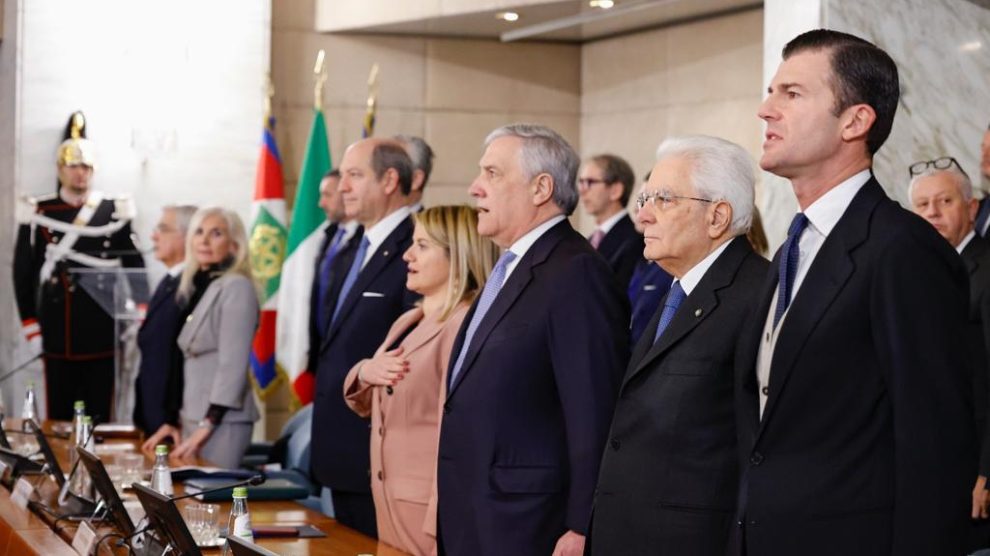Reflecting on Rome’s projection abroad. “Italy has been once again a protagonist on the international stage this year,” said Foreign Affairs Minister Antonio Tajani on the sidelines of the Italian Ambassadors’ conference – the sixteenth edition of an annual discussion on the promotion of Italian interests and values abroad, that comes as Italy prepares to lead the G-7 presidency in 2024.
- President Sergio Mattarella chaired the conference with Mr Tajani, who thanked him along with all the Italian ambassadors for their work.
- The event also gathered Italian diplomats and international guests, including United States Secretary Antony Blinken, United Kingdom Foreign Affairs Minister David Cameron, and European Union Commissioner for Climate Wopke Hoekstra.
Words from across the Atlantic. “We’re looking forward to Italy’s G-7 presidency next month and to working together on an agenda that will advance concrete benefits for people across the world,” said Secretary Blinken in a video message. Common goals include supporting Ukraine against the Russian aggression and in the Middle East, and “diplomacy is the first of the tools to achieve these goals,” he said.
Focus on Israel. At the conference opening, FM Tajani condemned Hamas’ attack against “defenceless victims” – one “recalling the Nazi brutality of the Holocaust” – but also called on Israel’s reaction “to be proportionate [and] spare the civilian population”. Mr Tajani stated that Italy is a friend of Israel but highlighted that the civilian population had unfortunately been “the main victim” over the past months. “Israel must be very careful, but Hamas must not use civilians as human shields.”
- Mr Blinken praised Italy as a “leader in affirming Israel’s right to ensure that attacks like October 7 never happen again, providing life-saving humanitarian relief to Palestinian civilians in Gaza and supporting the necessary steps for a durable, lasting peace.”
Watch out for antisemitism. President Mattarella said that the Middle East crisis caused the re-emergence of this phenomenon. Antisemitism is fed “by commonplaces and a distorted view of history,” he said, echoing recent words from Italian Senator and Holocaust survivor Liliana Segre. “[Antisemitic] messages must be addressed with the clearest condemnation, without ambiguity, without interpretations of convenience,” he added.
On Ukraine. The re-emergence of “imperial logic” is “unacceptable,” said President Mattarella, who stressed the importance of Italy focusing on multilateralism to govern globalisation, allowing for freedom and well-being. He remarked that considering the Russian aggression in Ukraine “a mere regional dimension” would be a “capital mistake,” and its “destabilising effects are being felt in all corners of the globe.”
- Rome “always had a clear and consistent position” and will continue working to guarantee Kyiv’s independence, said Mr Tajani.
- On his part, “Ukraine, which considers Italy a friendly country and is very grateful to us for the aid provided, has great confidence in our presidency of the G-7.” Ambassador to Kyiv Pier Francesco Zazo told ANSA, reiterating the need to unlock EU funding for Ukraine.
On migration. “The migration emergency cannot only be solved with police operations, but we need short, medium and long-term strategic action that can solve them at the root. Italy must be part of a great European project,” said Mr Tajani. The recently approved Mattei Plan for Africa – encapsulating Rome’s investment-based approach to Global South countries, itself set to be a key theme at the Italian-led G-7 – will “strengthen friendship” with the countries from which migration originates, he added.





